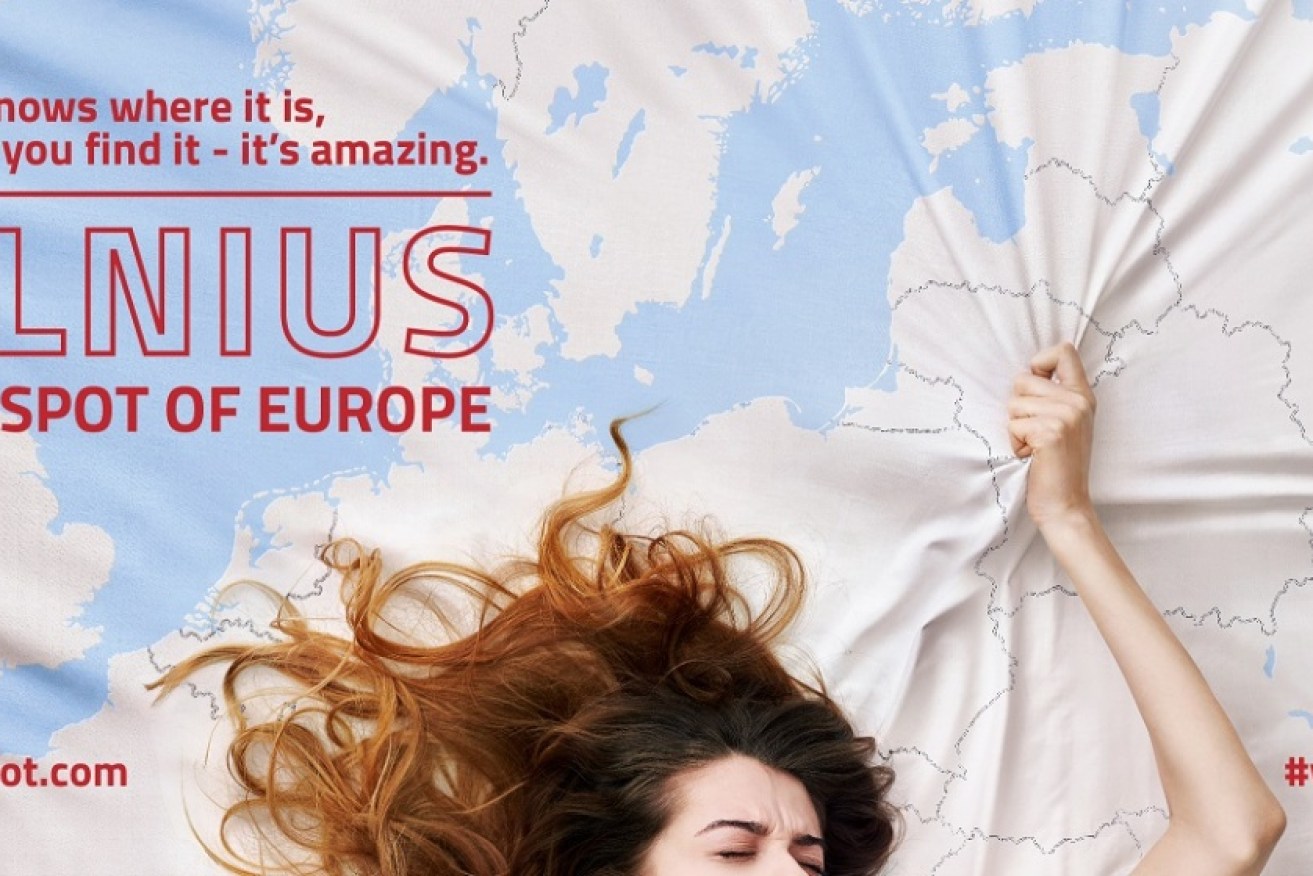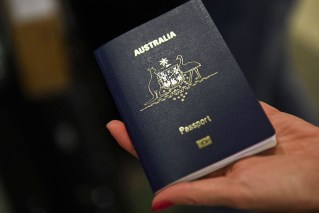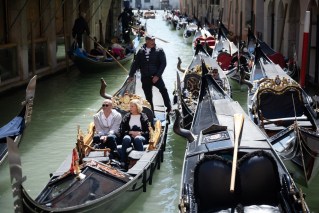Sex still sells: Lithuania capital Vilnius the ‘G-spot of Europe’ in ad campaign


The city of Vilnius's international tourism campaign. Photo: Go Vilnius
The rarely talked about capital city of Vilnius, Lithuania, has found a way to compete with the European tourism capitals of Paris and London with a “clever” ad campaign naming it the ‘G-spot of Europe’.
“Nobody knows where it is, but when you find it – it’s amazing,” is the tag line for the capital’s international tourism campaign.
The raunchy tag line alongside an image of a woman lying on bed sheets printed with the map of Europe, grasping a handful of fabric where Vilnius is located, is due to appear on London and Berlin billboards.
A series of short videos, featuring the hash tag ‘vilniusgspot’, showing ecstatic tourists looking at Vilnius cathedrals and modern architectural sites, has already been viewed by thousands since being uploaded this week.
Lithuania’s government had asked the city to postpone the campaign until after Pope Francis visits the city in late September, due to its sexual nature, but the creators refused, saying the advertising will end before his planned visit.
Former Vilnius mayor Arturas Zuokas also criticised the campaign, telling the AFP, “no one in the West is using sexist references in marketing any more”.
Deakin University marketing and management lecturer Michael Callaghan disagrees. When asked for his assessment of the campaign, he told The New Daily that sex still sells.
“Simply using semi-naked bodies or sexual suggestions is the lowest common denominator, but once you become creative on top of that, like in this case, that does demonstrate a slightly evolved approach to using sex to sell,” Dr Callaghan said.
“It may be the oldest marketing trick in the book, but it’s still an effective marketing tool because it works.”
Dr Callaghan said the campaign was also “quite clever” because it used visual clues to fill in the story, effectively avoiding laws restricting explicit advertising content.
“From an Australian advertising perspective, they [advertisers] would get away with this as the truth is, it’s our dirty minds connecting the dots of the imagery.
“It says more about the people looking at the message or the photo than the advertisers, and it’s an easy way to skirt [advertising] laws in numerous countries.”
The city’s official tourism service Go Vilnius said the poster, created by Lithuanian advertising students was aimed at people aged 18 to 35 and would only be displayed for a week.
Located less than 20 kilometres from the geographical centre of Europe, Vilnius is populated with more than 500,000 people.
The city’s tourism website boasts the city has everything from Italian Baroque to Russian Orthodox churches, from German Gothic to Austrian Rococo architecture.
The city was established in medieval times and is known for its strong Jewish influence.








